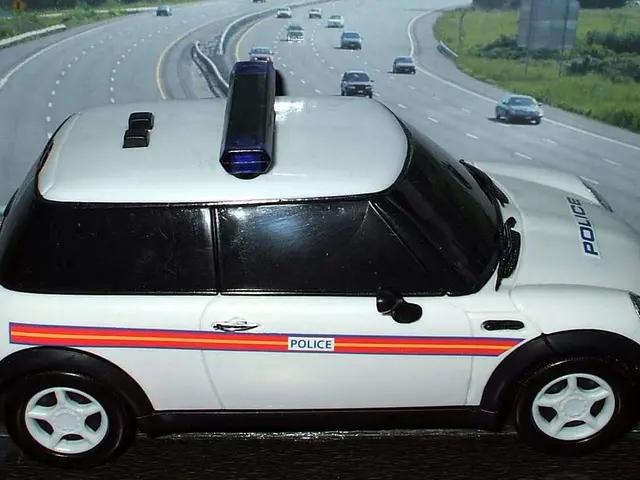Local pastor expresses no need for National Guard involvement following a robbery at their D.C. church
In the heart of Washington D.C.'s Ward 7, the East Washington Heights Baptist Church has become a focal point of concern for its members. The presence of National Guard troops on the city's streets, a result of President Trump's declaration of a "crime emergency" on Aug. 11, has brought about a series of changes in the neighbourhood.
Rev. Kip Banks, the church's pastor for more than two decades, has expressed his concerns about the safety and well-being of his congregation. According to him, crime has been a daily concern in the neighbourhood, but over the past year, it has been going down. However, he suggests that the federal dollars spent on the deployment could be better spent elsewhere.
Pastor Banks applauds the decrease in carjackings and crime overall, but disagrees with the military occupation approach. He emphasizes the need for love, light, and the way of Jesus Christ, rather than the way of war. He believes that the "beloved community" philosophy, described in Acts 2, is being hindered by the military occupation.
The members of the church have expressed unhappiness, burden, and trouble due to the presence of National Guard troops. Parishioners are scared to go across the river due to the fear of encountering troops. Some have even expressed concerns about the safety of ordering DoorDash or Uber Eats, due to accounts of drivers being taken away by ICE. Parents, particularly those with young Black men in the family, are particularly worried about the potential targeting of their loved ones.
Pastor Banks has spoken with colleagues in other cities, such as Chicago, Boston, and Los Angeles, who share similar concerns about the use of military forces to police communities. They collectively expressed that the militarization feels like an occupation that undermines community trust and safety, contrasting with their preferred neighbourhood policing philosophy centered on understanding and supporting residents rather than military presence.
In March this year, thieves stole laptops from the East Washington Heights Baptist Church. A few years earlier, someone broke into the church and stole communion wafers and vandalized the building. These incidents, along with the church's occasional appearance in the city's robbery statistics, add to the concerns of the congregation.
However, Pastor Banks also acknowledges the efforts of other federal law enforcement agencies that have helped local police make hundreds of arrests. Despite the challenges, he remains hopeful and committed to fostering a safe and supportive community for his congregation.








